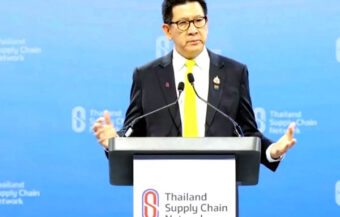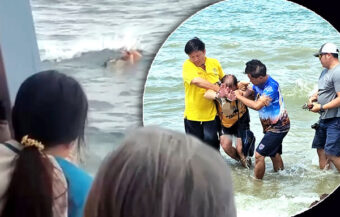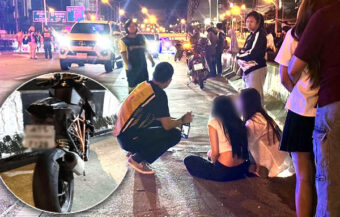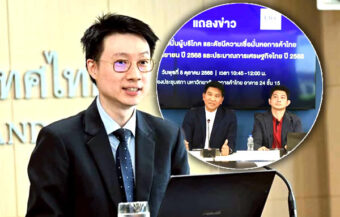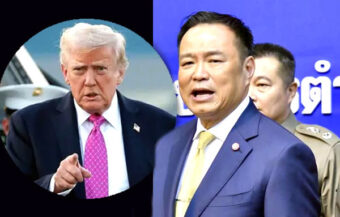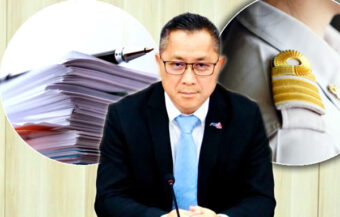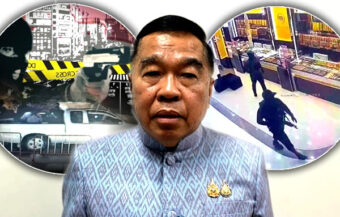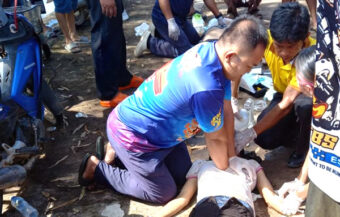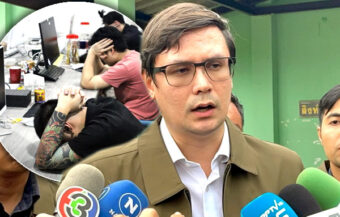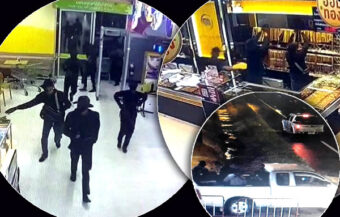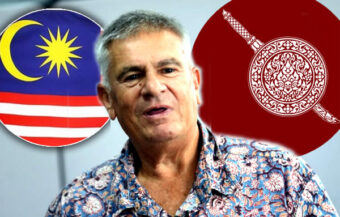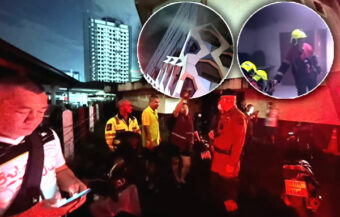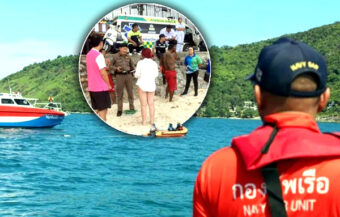The pattern of drug use in Thailand is far lower and different to western countries with the number of Thai addicts being drastically reduced between 2012 and 2016
Recent huge meth and heroin seizures lay bare the enormous challenges Thailand faces in stopping drugs from crossing through its border. While Thai lawmakers are examining the country’s strict drugs laws, an intensive war against drugs continues and it is important for an foreigner to Thailand to understand the situation and not to become the enemy.
Thailand’s drug control effort has long been plagued by the country’s proximity to one of the most extensive opium producing areas on earth – the notorious Golden Triangle, where the borders of Thailand, Laos, and Myanmar meet. The abundance of drugs has made it difficult for regional authorities to discourage the drug trade. But what really complicates the issue is the fact that numerous local warlords financially rely on drugs to fund their military operations, and as a result, they also wage war on efforts to take that main source of income away.
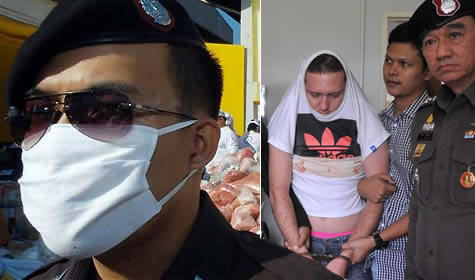
Drug control has always been a difficult challenge for authorities in Thailand. It has required a lot of attention and resources to be directed towards the control of the country’s borders in order to disrupt the illicit trade which undermines law and order spreads criminality. It is also deeply damaging to Thai men and women at the fringes and lower orders of society.
Thai military views drug cartels as a major threat to security and driver of crime in Thailand
In 2012, Thailand’s military claimed that the drug cartels and their operations were among the biggest security threats to the country’s people. The then Thai government called on other Southeast Asian nations to work together to eliminate the blight of narcotics in the region. In 2013, the Safe Mekong initiative was launched with the participation of Thailand, Laos, Cambodia, Myanmar, Vietnam and China. Its members participated in a shared information scheme on drug trafficking with one another. This has lead to many arrests and drug seizures. If the main aim of the initiative was to stymie and reduce the illicit drugs trade, there are signs however that it is not working. One such sign is the increasing prevalence of record drug seizures in Thailand.
Record seizures of drugs in Thailand a sign of increased traffic with Thailand seen as a hub
Over the past three years, 1.1 million kilograms of drugs were seized in Thailand, according to official statistics. Meth is reportedly the most popular kind of drug in Thailand. 300 million pills were confiscated. The majority of Thai meth users live in or around Bangkok. It is reported that that drug producers have somehow managed to triple output to keep up with losses caused by the recent vigorous crackdown. Last August saw an unprecedented seizure of more than 14 million methamphetamine pills worth about 1.48 billion baht in Chiang Rai by Thai police. The drug dealers had hidden the pills among farm produce and transported them through many warehouses to prevent being tracked down by the police. But not all the pills were reserved for Thailand. The country has become an international transition hub for drugs exporters in the infamous golden triangle area.
It is understood by security sources that drugs from neighboring Laos and Myanmar are imported into Thailand for onward distribution to other markets like Malaysia, Indonesia, America and Europe.
It is reported that some drug kingpins bring in Taiwanese chemists to help with the refinement process. The spike in drugs seizures and activity should not comes as a surprise. A UN report on the situation last May described the drug situation in South East Asia as having reached ‘alarming levels’. In the same period, there have been record drug confiscations in Malaysia and Indonesia.
One exception and perhaps a positive indicator is a drastic reduction in the amount of heroin seized by Thai authorities from 776 kg in 2013 to 189 kg in 2016.
Wa army on Thailand’s Myanmar border a key mover as reports indicate production is up
One of the most serious challenges Thailand experiences is that it has little control over the sources of the drugs it tries to keep away from its border. Some of the biggest narcotic networks in the Golden Triangle are run by Myanmar armed rebels who trade drugs to finance their military operations. One such name is the United Wa Army, which is the military wing of the United Wa State Party which governs an autonomous territory in Myanmar’s Shan state. It is backed by China and is recognized by the Myanmar government. It is considered a powerful military force with around 30,000 fighters. Several significant figures of the group are behind drug operations in Thailand and have been the subject of Thai arrest warrants in the past, such as Colonel Jolobo, a United Wa army commander, and Veera Muenja, his son-in-law. He is a well-known drug kingpin who has eluded Thai police for more than a decade.
Thailand fighting and winning a drugs war – as a foreigners, don’t become the enemy
For foreigners to Thailand this means that you should be aware that the Thai state apparatus is fighting a war with drugs. It views drugs as a threat to Thai society and also the security of the country. It is a war that Thai authorities are, in fact, winning. Drug use in Thailand peaked in 2012 when it was reported that 568,000 addicts sought treatment. The figure for 2016 was down to 87,491 according to data from the ONCB or Office of the Narcotics Control Board of Thailand. The Thai government views illicit drugs as both a health risk and national security issue. 80% of criminal cases in Thailand in 2013 were linked to illegal drugs according to the Department of Correction in Thailand.
Although the country is debating liberalising the laws in Thailand, this has yet to come to pass and may be a very limited and conditional relaxation, if any. The injunction to foreigners to avoid drugs also applies to foreigners visiting Thailand as tourists. Foreigners should also be wary and careful about bringing prescription drugs or any substances that could conceivably land the traveller in difficult legal terrain.
Some young and middle aged westerners visiting Thailand lave themselves open to danger
The increasing popularity of Thailand among younger western people has spawned dangerous behaviour regarding illicit drugs in environs frequented by foreigners. This includes the nightclub and disso scene as well as the popular tourist hotspots in the south of Thailand and some of its beautiful islands. Bangkok is home to most of Thailand’s drug consumers. It is true that at the higher ends of Thai society drug use has increased particularly in methamphetamines and drugs associated with a vibrant nightlife scene.
In the last forty years there are regular stories of young westerners being jailed for life and serving hard time in some of Thailand’s most notorious prisons over drug offences related to activities that they entered into casually often misinterpreting Thai hospitality and politeness for lack of respect for the law. Foreigners visiting and working in Thailand should also be aware that respect for Thai laws is an important issue. Recreational drug use is deeply frowned upon by the vast majority of Thai people even if Thailand is an emerging and more liberal society in more cosmopolitan urban circles.
Thailand has very low and different drug use pattern
The level of illicit drug use by Thai people is very low. According to a 2016 Thai national household survey, only 5.8% of Thai people surveyed had ever used an illegal drug substances. Foreigners should also note that the most popular illicit drug in Thailand is a local herb called kratom which is at the centre of a review by Thai legislators for a relaxation of Thai drugs laws. The reason for this is clear. Up to 70% of prisoners in Thailand’s prisons are landed there as the result of anti drug laws.
Law abiding Thai people may well report casual drug consumption as it is frowned upon
It is even likely that a normal, law abiding Thai citizen will go out of his or her way to report the consumption of drugs. A similar attitude prevailed in western countries decades ago. The result, for many foreigners every year in Thailand, is serious legal hot water. There is no easy way out or latitude if a person is detected by Thai police involved in the consumption of drugs in Thailand. It is sound, good advice for any foreigner in Thailand not only to not engage in any activity to do with drug consumption by also to actively avoid any environment where such activity is taking place. Raids by Thai police, that occur frequently and without notice, often result in groups of people being rounded up if found partaking in drug activity. If a foreigner is embroiled in such a situation, they are compromised. Extrication is possible but there is a very real danger involved which is best avoided. Nearly all tragedies involving foreigners visiting or living in Thailand stem from a lack of understanding of prevailing Thai culture. This extends to Thai law and the process of implementing the law in Thailand which does not always conform to the western template. Thailand is a society with its own unique and quite sophisticated legal framework which is best respected by foreigners.
Related articles on drugs and Thailand:
The Wa army and drugs in Thailand – the significance of the Golden Triangle
Foreigners using drugs in Thailand are asking for trouble and ill advised

